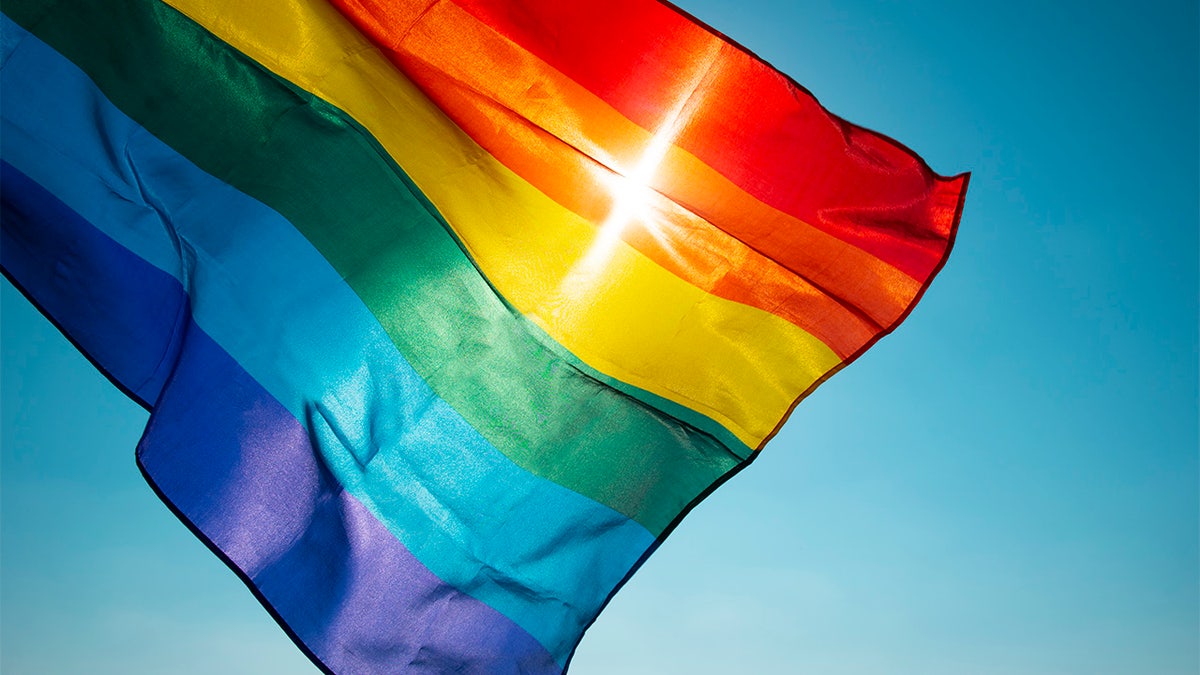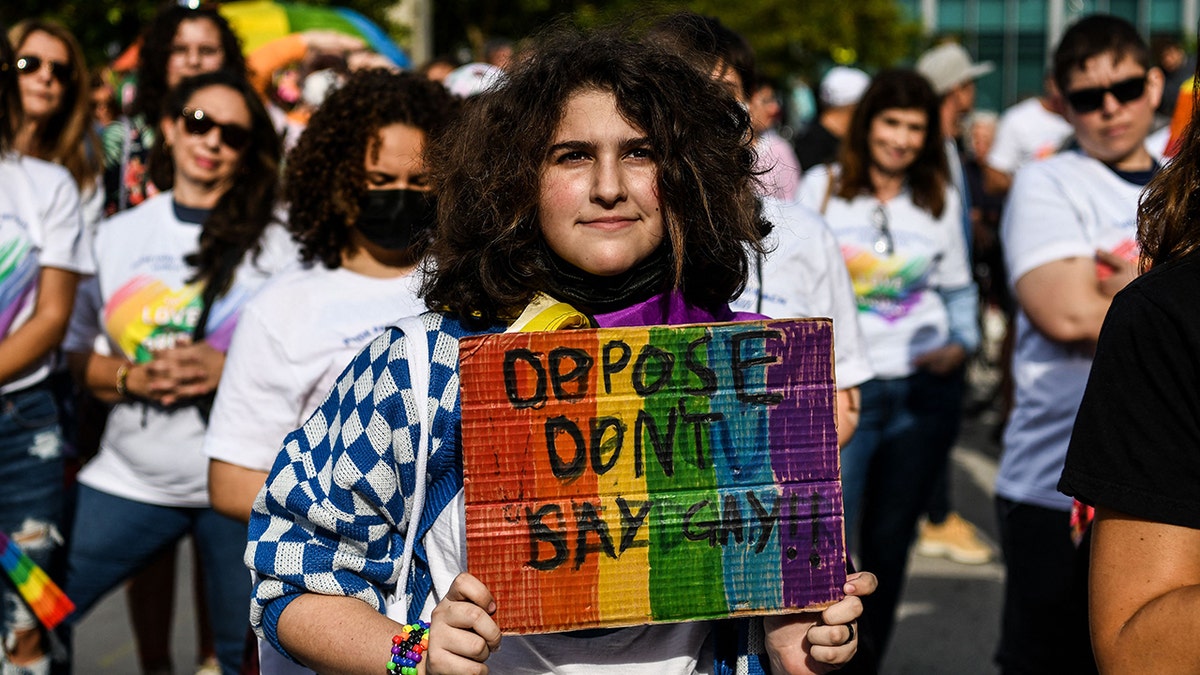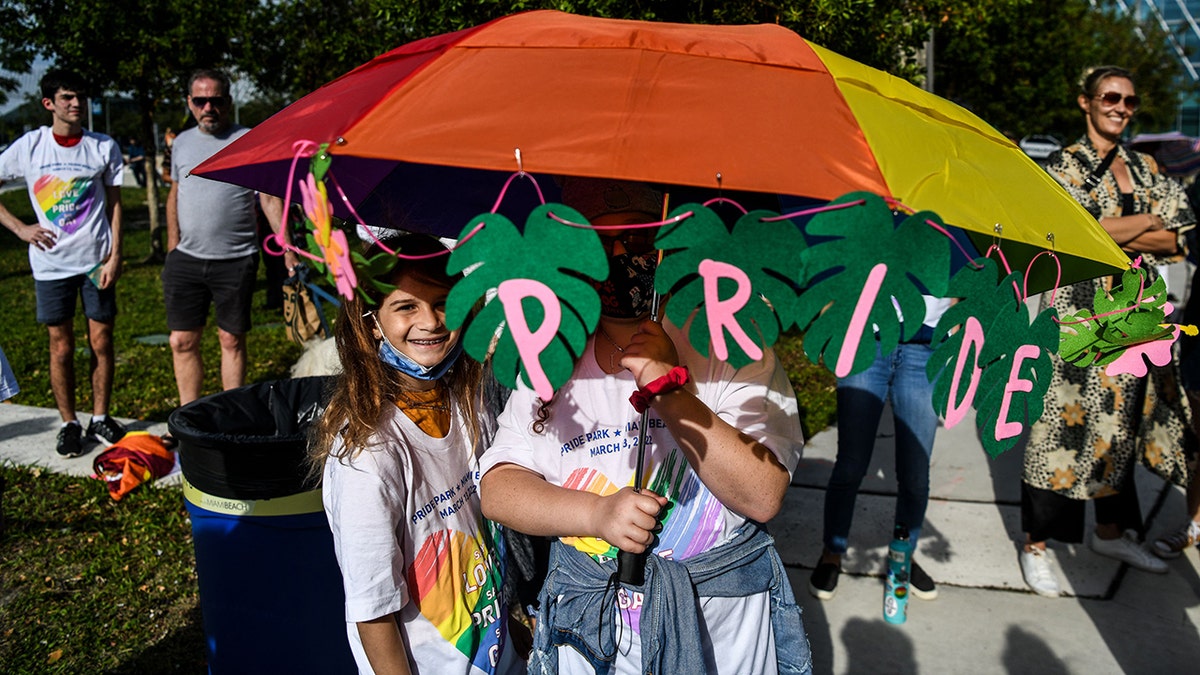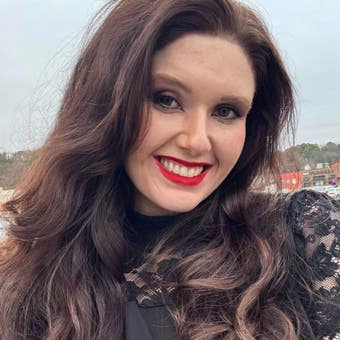GLAAD CEO argues for 'government intervention' in LGBTQ+ hate speech crackdowns
GLAAD CEO Sarah Kate Ellis joined 'CBS Mornings' on Thursday to discuss online hate speech against members of the LGBTQ+ community.
GLAAD CEO Sarah Kate Ellis thinks social media crackdowns and government intervention are steps needed to guarantee online safety for members of the LGBTQ+ community.
"We do need government intervention here, and we need the right policies," she said on "CBS Mornings" Thursday, responding to a question of who and what should implement crackdowns on social media hate speech against LGBTQ+ people.
"This has been going on for over a decade and Congress has been really ineffective to say the best," she added.
A GLAAD report discussed during the segment found that 84 percent of LGBTQ+ adults feel that "not enough" online protections are in place against discrimination and harassment.

A rainbow pride flag. (iStock)
According to the report, five key social media giants – Facebook, Instagram, TikTok, Twitter and YouTube – lacked essential protections for members of the LGBTQ+ community and created further dismay for those identifying as transgender by limiting their pronoun options on each platform.
"The environment out there is really tough for LGBTQ people, especially our youth," Ellis said. "Also, what's happened over this past year is we've seen over 300 anti-LGBTQ bills at the state level proposed."
Ellis argued that online hate speech perpetrators are to blame for the allegedly anti-LGBTQ legislation that has captured media attention over recent months, including Florida's Parental Rights in Education law that Democrats and the media coined as the "Don't Say Gay" bill, and numerous states' attempts to crack down on biological males competing in women's sports.

Members and supporters of the LGBTQ community attend the "Say Gay Anyway" rally in Miami Beach, Florida on March 13, 2022. Florida's state senate on March 8 passed a controversial bill banning lessons on sexual orientation and gender identity in elementary schools, a step that critics complain will hurt the LGBTQ community. (Photo by CHANDAN KHANNA / AFP) (Photo by CHANDAN KHANNA/AFP via Getty Images) ( (Photo by CHANDAN KHANNA/AFP via Getty Images))
"This is all driven from online. That's where people get together. That's where this hate and discrimination festers," she said.
"It's on us [to fix the problem]," she added, arguing that parents, kids and advocacy groups should report hateful rhetoric to big tech companies to further police language in the virtual world.
Ellis also said the major issue with social media giants is they have policy without "enforcement," noting a recent example from actor Elliot Page, whose former name Ellen was used in online criticisms.
"We had to get in touch with them to stop it, to curb it," she said of the social media platforms, adding, "We know they have the tools. We've seen them use the tools to stop it and get ahead of it."

Members and supporters of the LGBTQ community attend the "Say Gay Anyway" rally in Miami Beach, Florida on March 13, 2022. (Photo by CHANDAN KHANNA / AFP) (Photo by CHANDAN KHANNA/AFP via Getty Images) ( (Photo by CHANDAN KHANNA/AFP via Getty Images))
Ellis pointed to disinformation crackdowns on "disinformation" prior to the 2020 election as an example of one tool social media giants can use to limit controversial speech or speech allegedly based on falsehoods, though she also lamented the platforms allowed alleged disinformation to continue after President Biden's win.
"They can slow down the spread of misinformation. They can actually stop it, too," she said.
Host Tony Doukoupil pointed out that one person's misinformation may be another person's free speech and tied in conversations of who should be in charge of determining who or what is in charge of policing online hate speech.
"Congress, the tech platforms, us?" he asked.
"I think this is about safety, first and foremost, because what we're seeing is… this turns into real world challenges and problems."
CLICK HERE TO GET THE FOX NEWS APP
Social media crackdowns occurred most infamously when Twitter censored The New York Post for its early reporting on Hunter Biden's laptop scandal, citing "Russian disinformation" ahead of the 2020 election.












































